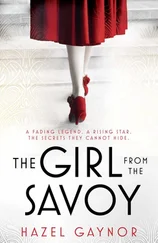In order to leave the restaurant, Larry had to pass by Polanski’s table. This was, needless to say, a bit uncomfortable. As he was going by, Polanski motioned for him to stop: “Larry, Larry, come over.” Then Polanski said to him, matter-of-factly, “If you had seen her naked, she was so beautiful, you would have wanted to fuck her, too.”
Polanski never denied saying that. But he was livid with Larry for relating the incident to Roger Gunson over a casual lunch. Gunson reported the incident in a signed statement to the DA’s office. Ironically, Polanski should have been very grateful to Larry. It was Larry who convinced the court to protect my rights and keep me from testifying, making it possible for him to get the plea bargain. Without that, Polanski probably would have served at least a few years in jail.
The lawsuit began in 1988 and was settled five years later for a six-figure sum. Polanski, however, avoided paying it for years, finally forcing us to file a notice of default, which had the unfortunate side effect of putting the dollar amount in the public record. The other terms of our settlement, most of which have remained confidential, include that Roman was forbidden from ever discussing the events of that night, or ever speaking about my family or me. I agreed not to commercially exploit the story and to assist if I could in his efforts to resolve his legal issues with the United States.
I was grateful for the money when it eventually showed up. But it is hardly a sum that would compensate for helping Polanski get back into the country if I thought it were the wrong thing to do.
For me, the 1990s were mostly about raising children. I had my third son, Matt, in 1993. I worked for a successful real estate developer on the island, and my husband, Dave, became, quite literally, a cowboy: He was the operations manager for the developer’s three-hundred-plus acres of various vacation and rental properties, which included a cattle ranch. I found great joy in living in a small town, where you know your neighbors and their kids and everybody looks out for each other; it was different from living on the mainland. The kids could go down to the park to play or down to the river to fish and you didn’t have to worry whether they were safe. Jes didn’t even have to wear shoes to school for the first year or two we were there. Alex was free to walk to school and go to the park and beach with his pack of buddies in complete safety. Matty was in the ocean learning to spearfish when he was seven. Doors unlocked, windows open, fresh air, afternoons at the beach fishing and barbecuing. Nice. We were a haven for dogs (five or six at a time, usually; my mother has six mastiffs) and people; it would be very strange not to have friends, or the kids of friends, living with us. I even remember Hurricane Iniki in 1992, which flattened the entire island—no phone, TV, or power for three months—as a pretty happy time. It’s not as bad as you think, being disconnected from the grid when you are connected to other creatures in so many other profound ways. When the electricity comes back, you’re a little shocked to realize you didn’t miss much.
There was one great sadness during that time, however. In 1995, my father died. Jack Gailey and I hadn’t seen each other and rarely had spoken in years. He had another family; I lived in Hawaii and hadn’t been back to York for a long, long time. He’d been in declining health, and when I heard he’d taken a bad turn, I got on a plane to see him. I didn’t make it in time. The last thing I’d said to him on the phone was “I love you, Daddy. I’m coming to see you.” The next time I saw him, he was in a ceramic urn at his funeral.
The wake was in Dad’s home. Everyone was lovely and welcoming. Dave needed something to do so he found all the tools and worked to clean up the large yard where the services would be held. I had some time alone, so I wandered in and out of those familiar and formidable rooms I’d grown up in. I loved that house. It was still a little spooky, but at the same time I felt like it knew I was back. That house to me was somehow like a living thing, a childhood friend. It welcomed me, too.
I found myself sitting at my father’s desk. I felt I’d been a favorite of my father’s as a child, but I also felt I was a disappointment: no college education, wild drug past, pregnant at eighteen, married at nineteen. As I sat at the desk, I was startled by something: an eight-by-ten photo of me on his shelf. He hadn’t forgotten me. I was still loved. Why hadn’t we spoken more over the years? What happened after Polanski that made me feel, more and more, that I wasn’t his little girl?
• • •
My easygoing life on Kauai helped me continue my life of “look away,” albeit more productively and happily than I did in my twenties. It was easy to turn away from the past, even when Roman Polanski, through his attorneys, would intermittently try to work out a deal with the DA so he could return to this country. Far from California, tucked away in paradise, my friends and neighbors in Kauai couldn’t care less about Roman Polanski or his films or what happened to me. Sometimes the stories of his efforts to return were just rumors; sometimes they were true:
By Steve James
Thursday, October 2, 1997
LOS ANGELES (Reuters): Hollywood was abuzz Tuesday over reports that fugitive director Roman Polanski might return from Europe to face sentencing in the teenage sex scandal that scuttled his US film career and sent him into a 20 year exile.
Several local TV stations reported the Polish-born maker of such classic films as “Rosemary’s Baby” and “Chinatown” was ready to come back to Los Angeles to be punished for having sex with a 13-year-old girl.
They said Polanski, now 64, had reached an agreement with the Los Angeles district attorney’s office that if he returns from France he would not serve time in jail.
The district attorney’s office denied any deals had been made.
Court records cited by the local reports showed Polanski’s lawyer Douglas Dalton had met twice in the last year with Deputy District Attorney Roger Gunson and Los Angeles Superior Court Judge Larry Fidler.
A source in the prosecutor’s office acknowledged there had been sporadic contact during the years with Polanski’s lawyer over the director’s attempt to work out a way he could return to the United States.
But officially, the district attorney’s office said its position had not changed in the last 20 years.
“Mr. Polanski must surrender,” said a spokeswoman. “We have not agreed to any sentence.”
This particular negotiation may have actually worked, if it weren’t for one snafu. The judge involved, Larry Paul Fidler (who also presided over the Phil Spector murder trial ten years later), reportedly insisted the Polanski proceedings be televised. A court spokesman later called this supposed demand “a complete fabrication.”
I don’t know which story is true, but I do know the deal fell through.
• • •
The media had an insatiable appetite for Polanski stories, and every time there was a rumor of a possible return, it would be covered—and I would be dragged along into it. Though I had no power to influence what was a legal matter, it didn’t matter to the writers and editors whose main focus was on word counts and sensationalism. In the rush toward a fat paycheck, I didn’t always come out so well. The Vanity Fair story published in April 1997 is a good example. Vanity Fair dines out on celebrity and crime, so this subject was, of course, irresistible.
Author Jill Robinson, who grew up in Hollywood and whose father, Dore Schary, once ran MGM, published an article in Vanity Fair under the slug “The Exile” and titled “Polanski’s Inferno.” She had, shall we say, a whimsical approach to facts. Beginning with a phone interview with Polanski where he noted that he lived through a time where “we were doing everything,” the article goes on to say that the Sharon Tate murders had so damaged Polanski that some sort of incident seemed almost inevitable. Describing Polanski as the kind of man who “seduced the magic out of you,” Robinson then insinuates that I would only talk to her if I were paid off with a trip to Disneyland (in fact she wanted to meet face-to-face, and thought I should fly to Los Angeles on my own dime to do just that). She then said I was prickly because her story wasn’t just about me (oh yes, the person who had been retaining a lawyer to keep herself out of the media), and I was bitter about the rape and its aftermath because I hadn’t succeeded in Hollywood. “She reminds me of the Unsinkable Molly Brown, still longing, in her way, to be ‘Up where the people are.’ ” I thought at the time: Perhaps she was confusing me with herself.
Читать дальше












